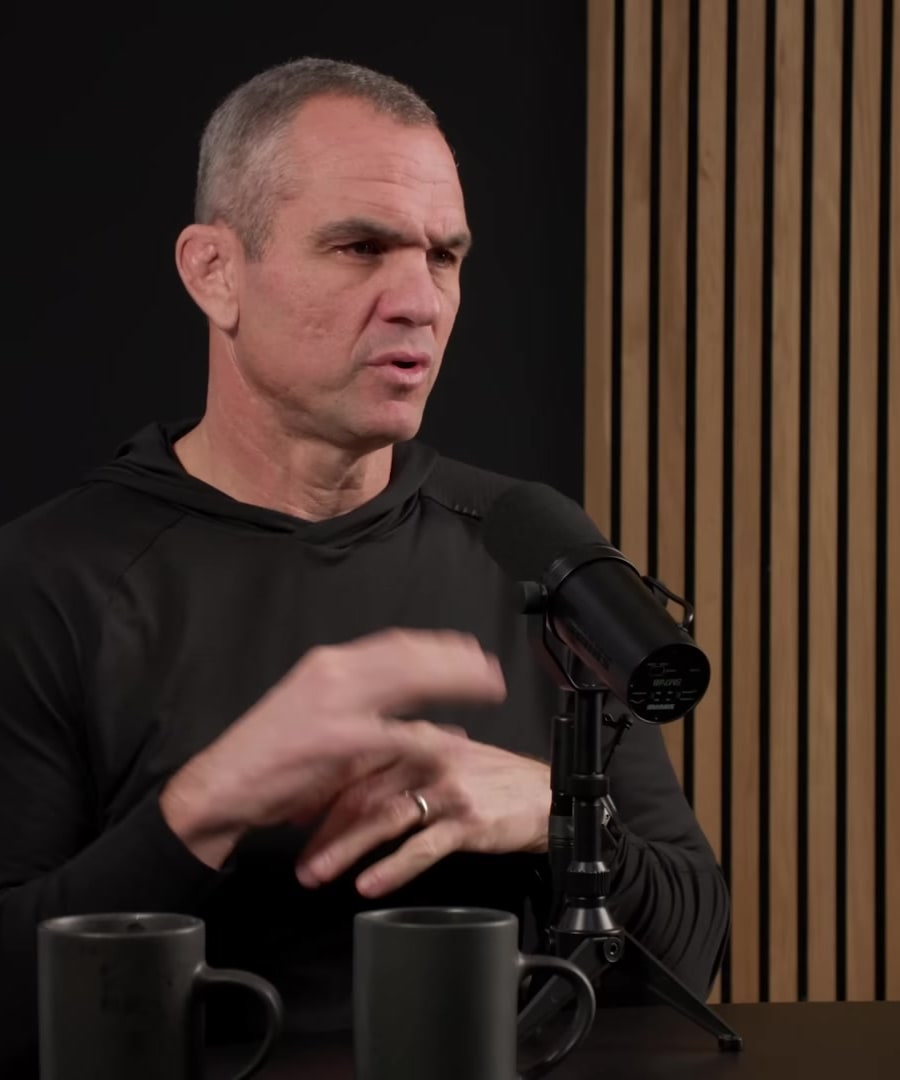Where are the sources?
Sources:
It seems like you might be looking for sources or citations related to discussions from the . Here are some examples of clips that discuss various topics from the podcast episodes:
-
Digital Deception Dilemma: This discussion highlights the pitfalls of modern communication, where reliance on emojis and filtered images can lead to a lack of genuine connection. It emphasizes the importance of mastering nonverbal cues and social skills through real-life interactions 1.
-
Military Life Reflections: Coleman Ruiz reflects on the profound emotional toll of military life, discussing the balance between personal and professional responsibilities and the shared humanity of warriors on all sides 2.
-
Memory and Perception: Charan Ranganath delves into the intricate relationship between memory and perception, explaining how our experiences shape what we remember and how emotions and context influence memory 3.
These are just a few examples. If you're looking for something more specific, let me know!
RELATED QUESTIONS-
I was specifically looking for sources regarding the intake of salt in the morning
Sources:
highlights the benefits of salt intake in the morning, especially to enhance cognitive and physical performance. Consuming a small pinch of salt with water can help stabilize blood sugar levels, improve mental clarity, and offer a sense of well-being. This practice is particularly beneficial for those feeling lightheaded or shaky, often mistaken for low blood sugar, but may actually be low sodium levels 1.
Salt, combined with adequate hydration, ensures optimal functioning of nerve cells and overall performance. It is important, however, to ensure that salt intake is balanced with water and is mindful of individual health conditions like hypertension 2 3.
RELATED QUESTIONSI have seen the videos but there are no citations or sources mentioned
Sources:
discusses the intake of salt in several contexts, often referring to Dr. James DiNicolantonio's book, "The Salt Fix." This book explores historical perspectives and modern recommendations regarding salt consumption, emphasizing that many common beliefs about salt may not be entirely accurate. Dr. DiNicolantonio suggests higher sodium intakes than typically recommended, with proper consideration of conditions like hypertension 1.
Dr. Huberman also notes the importance of sodium, magnesium, and potassium for nerve cell function, and recommends a pinch of salt with water in the morning to support alertness and physical performance 2. He emphasizes that individual salt needs can vary significantly depending on factors like diet, lifestyle, and health status 3.
If you're interested in understanding the balance of electrolytes and its influence on cognitive and physical performance, you might consider these insights while consulting with a healthcare provider to personalize any changes based on your health conditions.
RELATED QUESTIONSWhat studies support these claims?
Sources:
Several studies and reports discussed by on the examine the effects of salt intake on health. Here's a summary of relevant findings:
-
Controlled Sodium Studies: A study published in the "Journal of Clinical Investigation" highlighted how the body adapts to varying levels of salt intake through hormone regulation, affecting sodium retention and excretion. This adaptation challenges the view that salt appetite accurately reflects the body's needs, especially during exercise 1.
-
Health Outcomes and Salt: Some reports suggest that moderate salt intake might reduce the risk of hazardous health events compared to very high or low intake levels. There's a noted U-shaped curve, indicating that while high salt can be detrimental, moderately higher intake than typically recommended could potentially be beneficial 2.
-
Relation to Stress and Sodium: Various studies suggest that sodium levels can influence the body’s ability to cope with stress. There is a natural craving for more sodium under stress, which supports stress resilience, though excessive intake isn't advised if you're not hypertensive 3.
-
Salt's Impact on Brain Function: High salt intake has been linked to negative effects on brain health, such as increases in hazardous events including strokes. Conversely, too little salt can also impair brain function and longevity 4.
-
Historical and Modern Contexts: Dr. James DiNicolantonio's book "The Salt Fix" suggests higher sodium intakes may have certain health benefits and encourages reconsideration of traditional guidelines, advising 8-12 grams of salt per day. This is significantly higher than standard recommendations, aiming to balance sodium with potassium and magnesium for optimal health 5.
These insights stress the complexity of salt's role in health, emphasizing the need for individualized approaches based on one's health status and lifestyle.
RELATED QUESTIONS-
Where can I find more sources?
Sources:
For more information on studies supporting claims about salt intake, you might explore the associated studies and discussions in the following :
-
Brain and Bodily Health: discusses studies showing that both high and low salt intake can negatively impact organs and brain health. High salt can lead to brain tissue swelling, while low salt can shrink brain cells 1.
-
Cardiovascular Impact: A 2011 study published in the "Journal of the American Medical Association" links sodium excretion to cardiovascular events, indicating that moderate sodium levels might reduce health risks, while both low and high levels can increase such risks 2.
-
Complex Interactions with Diet: noted that many studies fail to isolate salt intake from other dietary factors, like excessive carbohydrates or fats, complicating the understanding of salt's specific effects 3.
-
Stress Response and Sodium: It's suggested our body might crave sodium to counteract stress and bolster stress resilience, potentially benefiting those with low blood pressure or stress-induced anxiety 4.
These insights from underline the complexity of salt's role in health, advocating for more personalized assessments of ideal intake levels.
RELATED QUESTIONS-
Where are the sources?
- RELATED QUESTIONS
I was specifically looking for sources regarding the intake of salt in the morning
- RELATED QUESTIONS
I have seen the videos but there are no citations or sources mentioned
- RELATED QUESTIONS
What studies support these claims?
- RELATED QUESTIONS
Where can I find more sources?
- RELATED QUESTIONS











